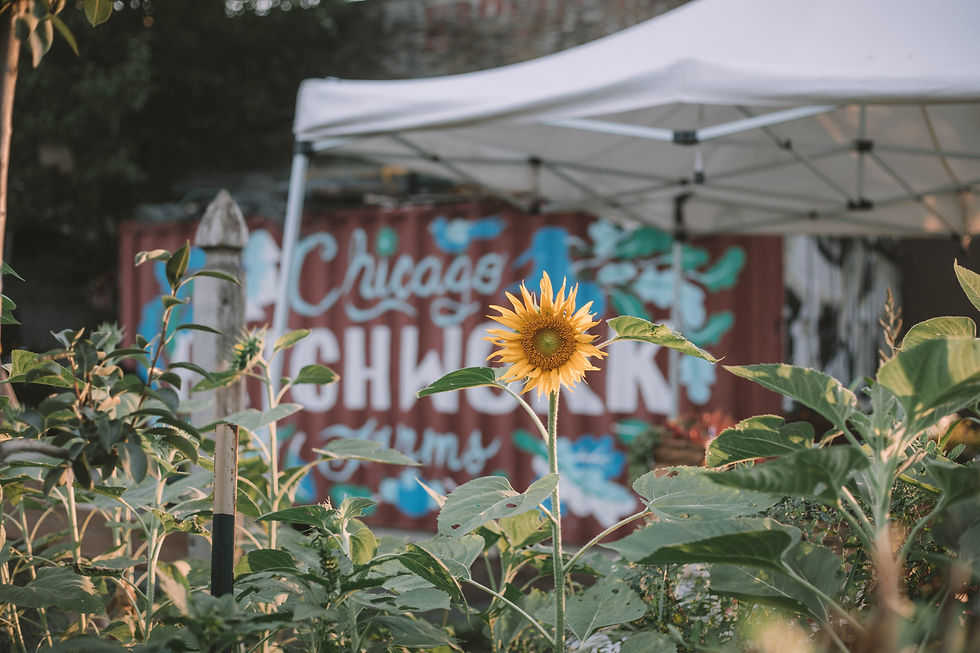Urban Agriculture Speaker Series
- Marlene
- Jun 18, 2017
- 3 min read
The Green Building Alliance, a local Pittsburgh organization, finished their Inspire Speakers Series on Tuesday, June 6th with a lecture on food and sustainability. The lecture brought together Stephen Ritz of Green Machine Bronx, Raqueeb Bey of Black Urban Gardeners and Farmers of Pittsburgh Co-op (BUG-FPC), and Karen Washington of Rise and Root Farm. The three speakers are passionate about urban agriculture and engaging with the community to address systemic social issues seen throughout the country.

Jake Seltman, the Executive Director of Grow Pittsburgh, warmly welcomed the speakers and shared the three values he felt embodied each speaker’s mission and objectives regarding their communities, food, and sustainability. Those values include community participation, social justice, and food sovereignty. The question then remains, how can the legal field support these values?
Community participation is integral when it comes to changing the urban agriculture landscape; without a demand from residents and the community as a whole, outdated laws and regulations in areas like zoning and other realms remain unchanged. Many cities have revised zoning codes underway, but community participation is vital to ensure change that supports urban farmers. Encouraging legal structures that foster community participation, and creating legal resources that allow community members to better understand and comment on proposed regulations can help push the boundaries and develop law that is current and relevant to the urban environment.
Social justice addresses social mobility and economic justice within a community, and legal efforts can support social justice by working to increase accessibility to permits and opportunities involving urban agriculture to allow for abundant and diverse gardens. For example, the City of Pittsburgh passed changes to the urban agriculture zoning code in July 2015, making it easier for City residents to keep chickens, bees, and other small animals on their property.

Other cities across the country are making changes like this, including Baltimore, Detroit, and Milwaukee because increasing opportunities for urban agriculture not only provides economic opportunity, but also empowers communities. A particular challenge that every urban farmer and gardener faces is access to land. Public land is wonderful, but leases and licenses for the property may not be long-term; private land is more permanent, but purchasing the land may be expensive and time intensive. Creating opportunities for education on the legal intricacies of different forms of land access and how to make land for urban agriculture more accessible can help support urban agriculture’s role in social justice.
Food sovereignty was the final value discussed at the lecture and it is one that addresses the right of individuals to have healthy and culturally appropriate foods that are sustainably produced and readily available. Urban farms and gardens speak to food sovereignty by giving individuals the right to choose what they eat and how they eat it through the local food system.
From a legal perspective, the legislation and regulations surrounding local food production and distribution may be analyzed at all levels of government to assess the barriers farmers and gardeners face in local food systems and if they can be removed. For example, cottage food laws may be burdensome on individuals seeking to produce value-added products at home because certain health department regulations make it challenging and expensive to produce products from the home.
Furthermore, local food procurement policies can significantly strengthen local food systems. These policies give purchasing preference and power to local farmers and producers in the bidding process for food contracts with large public agencies, like universities, public school, government, and hospitals. Local procurement policies support smaller farmers and local producers that may otherwise be overshadowed by large corporations and thereby balance the food market and support the local food system.

A few states, including Vermont and New Hampshire, as well as New York City and Los Angeles have policies in place that favor locally sourced food. Adopting local procurement policies have extensive economic, health, and environmental benefits, which further supports the value of food sovereignty and social justice. Working with lawyers and non-profits to help advocate for policy changes that make local food production and processing easier can lead to increased food sovereignty in communities.
Improving our food and long term sustainability requires cross-sector cooperation and consideration, as well as active members from all parts of the community-organizers, lawyers, activists, gardeners, consumers, etc.-to develop a sustainable and just system for all. Each city across this country has its own challenges, and no one city is alone in this journey.

So this month we leave our readers with a question: what can you do to support the core values of food and sustainability discussed at the final Inspire Speakers Series? There is no single answer, and at times it may seem difficult, but in the spirit of Stephen Ritz and the other speakers, ¡si se puede! (yes you can!)
For more information on the Green Building Alliance and the speakers, please visit the following websites:




Comments